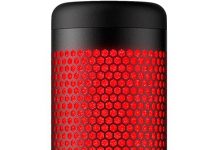When choosing the right keyboard for your musical journey, the decision between a 61-key or an 88-key instrument can be pretty perplexing. Each option brings its own advantages and limitations, making it essential to understand the differences before purchasing.
In this article, we will explore the factors that play a role in determining which keyboard size is better suited for your needs. So, whether you’re a beginner eager to learn the basics or a seasoned player aiming to master complex compositions, we’ve got you covered.
Let’s dive in and find out which keyboard size will harmonize best with your musical aspirations.
Review contents
Portability
Weight and size
When it comes to portability, the weight and size of a keyboard play a crucial role. For those of us constantly on the go, whether for gigs, rehearsals, or jam sessions with friends, having a lightweight and compact keyboard is essential. A 61-key keyboard is generally more portable compared to an 88-key keyboard. It is smaller and lighter, making it easier to carry around without straining our backs.
Ease of transportation
Transporting a keyboard can be a hassle if it’s not designed with convenience in mind. Thankfully, most modern 61-key and 88-key keyboards have features allowing easy transportation. Both keyboards often have built-in carrying handles or slots for attaching straps, making them easy to carry over short distances. However, due to its smaller size and lighter weight, a 61-key keyboard is generally easier to transport over longer distances than an 88-key keyboard.
Playing Range
Octave range
The number of keys on a keyboard determines its playing range. A 61-key keyboard typically spans five octaves, while an 88-key keyboard spans a little over seven octaves. This means an 88-key keyboard can cover a broader range of notes, allowing for more versatility in musical compositions and performances. With a more significant number of octaves, we can play both high and low notes with ease and without having to transpose our music constantly.
Access to high and low notes
An 88-key keyboard has a clear advantage in accessing high and low notes. With the additional keys, we have access to a broader range of pitches, making it easier to play compositions that require intricate melodies in both the high and low registers. On the other hand, a 61-key keyboard can still produce high and low notes, but we may need to use different techniques, such as octave shifting, to reach the desired range. This can be a limitation for specific genres or complex musical arrangements.
This image is the property of www.cmuse.org.
Playing Techniques
Chord voicings
Chord voicings refer to how chords are arranged and voiced on the keyboard. Both 61-key and 88-key keyboards allow for various chord voicings, but the larger keyboard size of an 88-key offers more room for creativity and experimentation. We can explore different chord inversions, embellishments, and extensions with additional keys, resulting in more prosperous and complex harmonies. However, it’s important to note that even with a 61-key keyboard, we can still achieve a wide range of chord voicings, depending on our playing style and musical creativity.
Arpeggios and scales
The number of keys on a keyboard becomes crucial regarding arpeggios and scales. An 88-key keyboard provides a broader range for practicing and performing arpeggios and scales, allowing for more musical possibilities. With the additional keys, we can execute complex patterns and melodic runs seamlessly and fluidly. However, a 61-key keyboard can still accommodate most arpeggios and scales, albeit with some limitations in terms of range and flexibility.
Feel and Response
Weighted vs. semi-weighted keys
The feel and response of a keyboard significantly impact our playing experience. An 88-key keyboard often comes with weighted keys, mimicking the touch and feel of an acoustic piano. This means that the keys have resistance and respond to our touch with varying levels of force, similar to the feel of pressing down on piano keys. On the other hand, a 61-key keyboard may come with semi-weighted or synth-action keys. These keys are lighter and respond quicker, benefiting specific genres like electronic or pop music. It ultimately comes down to personal preference and our specific musical style.
Expressiveness
Expressiveness in playing refers to the ability to convey emotions and dynamics through the keys. An 88-key keyboard with weighted keys often offers better expressiveness due to the nuanced touch sensitivity. We can control the volume and dynamics of our playing by applying different pressure levels to the keys. This is especially important for genres that require a wide range of dynamics or delicate phrasing, such as classical music. A 61-key keyboard, while still capable of expressiveness, may have limitations regarding the range of dynamics and subtleties that can be achieved.
This image is the property of piano-keyboard-reviews.com.
Built-in Features
Sound options
Both 61-key and 88-key keyboards usually come with various built-in sounds and voices. These sounds range from basic piano tones to various instruments and synthesizer sounds.
While the number of available voices can vary between keyboards, both types typically offer a versatile selection to cater to different musical genres and preferences. It’s essential to consider the types of sounds we require for our music and whether the keyboard offers the variety and quality we desire.
Sound production capabilities
The sound production capabilities of a keyboard include features such as built-in speakers, audio outputs, and the ability to connect to external devices. While these features can vary between different 61-key and 88-key keyboards, they are generally designed to provide a convenient way to produce and amplify sound. Having built-in speakers can be helpful in practice sessions or small performances where portability and simplicity are essential. However, connecting to external sound systems or amplifiers may be necessary for professional use or larger venues. It’s vital to assess our specific needs and the keyboard’s available sound production capabilities before deciding.
Versatility
Genres and musical styles
The versatility of a keyboard is an essential factor to consider, especially when it comes to different genres and musical styles. While 61-key and 88-key keyboards can accommodate a wide range of genres, an 88-key keyboard offers more flexibility due to its more extensive range, expressive capabilities, and additional sound options.
For classical, jazz, or any genre that requires a broad playing range and intricate compositions, an 88-key keyboard is often the preferred choice. However, for more compact genres like pop, rock, or electronic music, a 61-key keyboard can still offer ample versatility and creative possibilities.
Accompaniment functionality
Many keyboards come with built-in accompaniment features that allow us to create full arrangements on the spot. These features often include backing tracks, rhythm patterns, and auto-accompaniment functions.
While 61-key and 88-key keyboards can have similar accompaniment functionalities, the larger size of an 88-key keyboard can provide more control and options for creating dynamic arrangements. However, for those primarily focused on solo playing or using external accompaniment sources, a 61-key keyboard can still provide sufficient capabilities for composing and performing.
This image is the property of pianoground.com.
Learning and Skill Development
Learning options
For beginners or those looking to improve their skills, having learning options on a keyboard can be highly beneficial. Many keyboards, whether they are 61-keys or 88-keys, come with built-in learning tools such as integrated lessons, interactive tutorials, and even connectivity to learning apps or software. These learning options can assist in developing music theory, technique, and overall playing skills. While the availability of these features can vary between different keyboard models, both 61-key and 88-key keyboards can provide valuable learning resources to help us progress on our musical journey.
Transposing and key shifting
Transposing and critical shifting allow us to adjust the instrument’s pitch without changing our notes. 61-key and 88-key keyboards often offer these functionalities, allowing us to adapt to musical contexts or play with recorded tracks in different keys. While an 88-key keyboard provides a broader range of transposition options, a 61-key keyboard can still cover most common vital changes. It’s crucial to consider our specific repertoire and the frequency of critical changes when assessing the importance of transposing and key shifting capabilities.
Price Range
Budget considerations
Price range is a significant factor when considering which keyboard to purchase. Generally, 61-key keyboards tend to be more budget-friendly compared to 88-key keyboards. This is primarily due to the smaller size and fewer keys, which often translates to a lower manufacturing cost. If we are on a limited budget or just starting, a 61-key keyboard may be a more cost-effective option.
Value for money
While 61-key keyboards offer a more affordable price point, it’s essential to consider the overall value for money. An 88-key keyboard often comes with additional features, better build quality and a more realistic playing experience due to weighted keys. If our budget allows for it and we are serious about playing and performing, investing in an 88-key keyboard might offer better value for money in the long run. However, if portability and budget are our primary concerns, a 61-key keyboard can still provide satisfactory performance and versatility.
This image is the property of res.cloudinary.com.
Skill Level
Beginners
For beginners, choosing the right keyboard is crucial in setting a solid foundation for their musical journey. A 61-key keyboard is often recommended as a starting point due to its compact size, affordability, and simplicity.
It provides enough keys to learn and practice the basics without overwhelming beginners with unnecessary complexity. Additionally, beginners can still develop essential skills such as playing scales, chords, and melodies effectively on a 61-key keyboard.
Intermediate and advanced players
As we progress in our musical journey and develop more advanced skills, an 88-key keyboard becomes increasingly beneficial. Intermediate and advanced players often require a more comprehensive range of notes and expressive capabilities to tackle complex musical compositions and genres. The full-sized keyboard, weighted keys, and additional features of an 88-key keyboard provide the necessary tools to explore advanced playing techniques, intricate harmonies, and dynamic performances. However, it’s important to note that skill level alone does not dictate the choice of keyboard, and personal preferences and specific musical goals should also be considered.
Available Accessories
Sustain pedal
A sustain pedal is a popular accessory for keyboards as it allows us to hold notes and chords, allowing them to sustain and ring out for a more expressive and cohesive sound. Both 61-key and 88-key keyboards typically have a dedicated pedal input to accommodate a sustain pedal. A sustained pedal can significantly enhance our playing experience and performance, regardless of the keyboard size.
Keyboard stand or bench
A keyboard stand, or bench is essential to position and support our keyboard during practice or performance properly. 61-key and 88-key keyboards can be used with stands or benches designed explicitly for keyboards. These accessories ensure comfortable playing positions, adjustability for various heights, and stability during intense playing sessions. The choice between a stand or bench ultimately depends on personal preference and the specific playing setup we require.
In conclusion, deciding between a 61-key and an 88-key keyboard depends on portability needs, playing range requirements, playing techniques, and budget considerations.
While a 61-key keyboard offers portability benefits and can still accommodate a range of musical genres, an 88-key keyboard provides a more comprehensive playing range, greater versatility, and a more expressive playing experience.
Ultimately, choosing the right keyboard involves assessing our needs, skill level, and musical goals. With a wide range of options in both sizes, we will find the perfect keyboard that suits our playing style and preferences.
This image is the property of allforturntables.com.




































